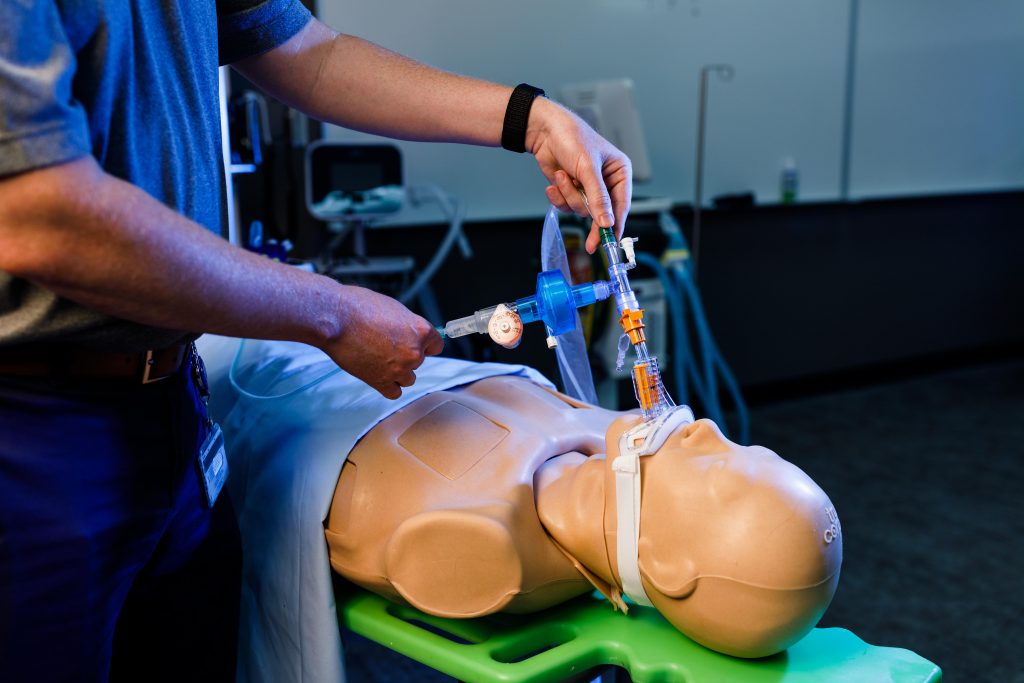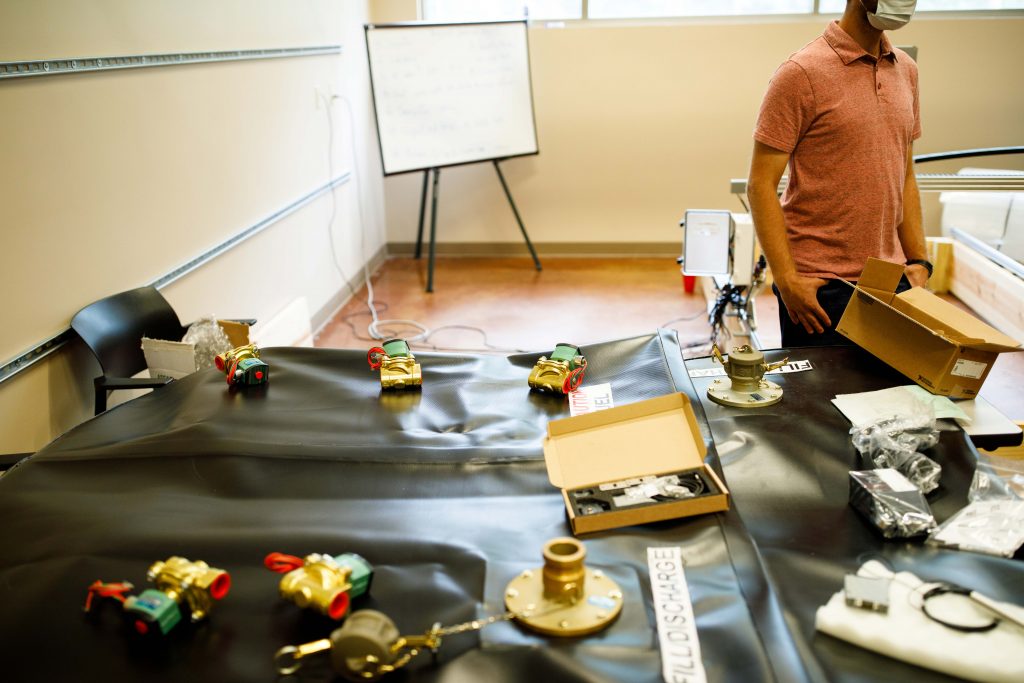Engineering professor Uses Talents in the War on Covid-19

Liberty University has entered the fight against COVID-19 with mechanical engineering professor, Dr. Wayne Strasser developing research on a nasal device and breathing mask related to helping fight the virus.
Strasser’s research focuses on the respiratory treatment used in diminishing the transmission of COVID-19 at the source. A spokesman from Vapotherm Inc., one of the collaborators in Strasser’s research, asked his team to help them study their high velocity nasal cannula design that can flush airways during the time a patient has nasal therapy.
“They were concerned back in the spring that this cannula was increasing the likelihood of someone in a hospital room or other treatment facility being exposed to COVID,” Dr. Strasser said.
In his research he explains how COVID affects patients in the way they breathe. Through a grant for $100,000 from Microsoft using their high-powered computing facility, the team studied a simulation of COVID particles leaving patients’ airways.
“We’re looking at the way the particles leave their nose and mouth and track throughout the room, particularly what they do with respect to the caregivers that are near them in the hospital room,” Strasser said.

According to Strasser’s research, a doctor in Brooklyn, New York came up with an idea. The doctor explained that, instead of patients using a ventilator for oxygen, they could use a hard plastic, PVC mask. The line for oxygen in the mask is replaced with a suction. This has proven to be most effective method for capturing particles, and despite the leakage and flow of breathing, it is better than a typical surgical mask.
“It doesn’t pull your breath out of you; it just pulls the steady stream around your face and out of the mask,” Strasser said.
The team is continuing to research and learn more about the designs of the nasal device and breathing masks. Strasser and his team’s ultimate goal is to make recommendations for hospitals and other places on how to handle COVID-19.
After 25 years as an engineer, Strasser worked to provide solutions to multiple problems related to fluids, phase changes and reactions. He has spent the last year at Liberty and teaches two engine ing classes in fluid dynamics and thermal fluid lab.
“I knew that God has called me to teach, and that has been the very rewarding part of this in the research work, working with undergrad and graduate students,” he said.
Strasser leads graduate and undergraduate students in research, teaching them to dig deep into the world of physics. He encourages his graduate students with their work by publishing it on his website, FLUIDgroup.org.

“Graduate training can take on multiple forms; it can be paid or unpaid, but in general, I am training undergrads and graduates to think critically about physics and their faith and merging those two together,” Strasser said.
His goal is to change the way people look at Liberty University as not just a God-centered university but also to help them see God’s role in engineering research.
“Liberty has traditionally been a teaching institution, so I provide quality undergrad education and mentoring. My primary role here, however, is to change the face of Liberty and the paradigm of how the world views Liberty with respect to science, research and engineering,” Strasser said.
Hannah Woolwine is a News Reporter. Follow her on Twitter at @WoolwineHannah.

Great! Proud of you.